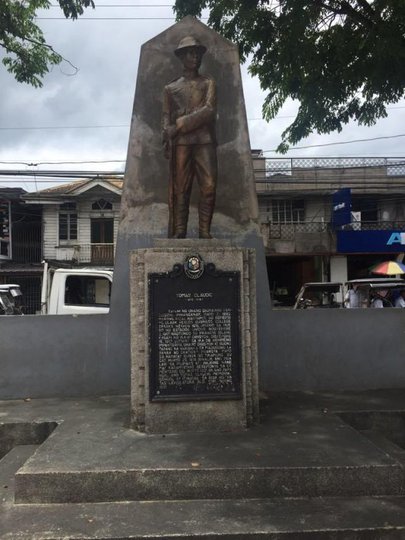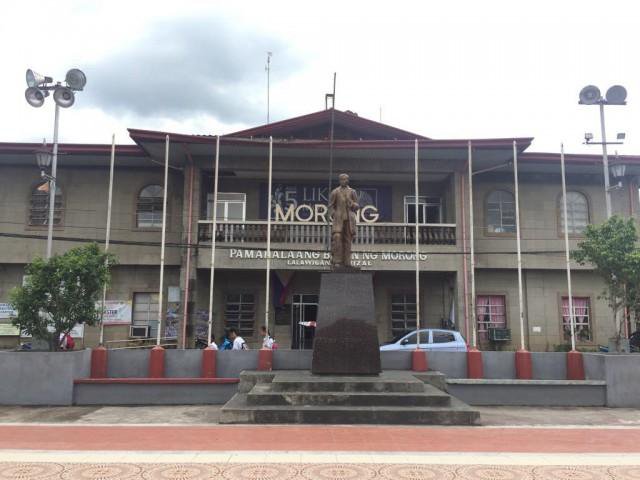Morong, Rizal: Visiting the hometown of WWI hero Tomas Claudio
Morong, Rizal is known as the birthplace of Tomas Claudio, a defender of democracy who died at age 26 as a soldier in the US Army in World War I.
Claudio, like most overseas Filipino workers today, left his family to seek his fortune abroad.
Through hard work and perseverance, he finished his education and fulfilled his dream of becoming a soldier.
He remained devoted to his family, providing for his siblings Adelfa and Arturo, as evident in his letters that detailed his plans and accomplishments.
As a soldier in the US Army, Claudio was part of the American Expeditionary Forces that went to France to fight for the Allied side. He was killed in Chateau-Thierry, one of the major battle sites in the war, in 1918.
The Museong Pambayan
Catching a glimpse of the rich culture and history of Morong is worth the two-hour, 47-kilometer from Manila.
At the Museong Pambayan ng Morong—located at the old Commandancia, or the building that used to house the seat of government—a gallery preserves news articles, letters, and portraits of Tomas Claudio.
The museum also showcases other prominent Morongueños, housing the works of artist Rafael "Paeng" Pacheco, known as the father of finger and palm painting in the Philippines, and the composer, conductor, and National Artist for Music Francisco Feliciano.
Other items on display represent the livelihood and daily routine of the people of Morong, including an almario or cabinet for bedsheets and pillows, farming equipment, and cooking utensils.
The Morong dialect
The local way of speaking Tagalog is with a singsong accent, and it is unique and easily recognized even in a crowd.
This was attested to by US-based Marilou Garrovillas-Santiago, who said she was approached by a college classmate in New York when he heard her "Morong accent."
In Morong Tagalog, the letter D in many words is replaced with the letter R. At the museum, administrative officer Fatima Angeles pointed out the labels on some household utensils such as the "Sanrok (Sandok)."
"It is like the common phrase, ang sanrok sa ringring [ang sandok na nakasabit sa dingding]," she said.
Church heritage
Another tourist attraction in Morong is the 400-year-old St. Jerome Parish Church, which stands to witness the townspeople's steadfast faith.
According to the town's official website, the stone church was built in 1615 in the Baroque style by Chinese artisans.
Assistant parish priest Father Arnuldo Estrada told GMA News Online that the original design was "touched" up—a coat of cement was added to the original structure—and underscored that there are guidelines that should have been followed in church renovations.
Recently, to promote devout adoration to the Holy Eucharist, the parish revived the practice of kneeling when receiving communion.
Estrada said they installed kneelers in front of the altar to encourage parishioners to follow this tradition.
The practice may be difficult for the elderly and those with knee problems, he said, but this would deliver the message to the faithful of the sacredness of the Sacrament of the Holy Eucharist.
A second purpose for the revival is the reports, though unconfirmed Estrada said, are to end the inappropriate action of some communicants who take the host outside of the church.
Support
Morongueños now living abroad or in other parts of the Philippines have not forgotten their hometown, as they continue to extend support for heritage conservation.
Museum worker Angeles underscored the need to educate people, particularly young people, on the town's culture, history, and tradition.
To this end, she said, town officials have discussed setting up a website for the museum. — BM, GMA News
—
2 Likes0 Replies
Living in Morong, Rizal: Guide to your new home
Active
Priority Assistance
₱ 1.20 million
For Sale Pre-Selling Townhouse
2 Bedrooms 1 Bathroom 44 sqm.
Morong Rizal
Active
Boosted
₱ 325,000₱ 6,500/sqm
For Sale Residential Lot
50 sqm.
Morong Rizal
Active
Priority Assistance
₱ 750,000
For Sale Pre-Selling Rowhouse
1 Bedroom 1 Bathroom 22 sqm.
Morong Rizal
Active
Boosted
₱ 500,000₱ 5,000/sqm
For Sale Residential Farm
100 sqm.
Morong Rizal
Active
In Demand
₱ 400,000₱ 4,000/sqm
For Sale Residential Farm
100 sqm.
Morong Rizal
Active
In Demand
₱ 480,000₱ 6,000/sqm
For Sale Residential Lot
80 sqm.
Morong Rizal
Active
₱ 480,000₱ 6,000/sqm
For Sale Residential Lot
80 sqm.
Morong Rizal
Active
₱ 480,000₱ 6,000/sqm
For Sale Residential Lot
80 sqm.
Morong Rizal
Active
₱ 450,000₱ 4,500/sqm
For Sale Residential Lot
100 sqm.
Morong Rizal
Active
₱ 560,000₱ 5,600/sqm
For Sale Residential Farm
100 sqm.
Morong Rizal
Active
₱ 1.70 million
For Sale Pre-Selling Rowhouse
2 Bedrooms 1 Bathroom 44 sqm.
Morong Rizal





















